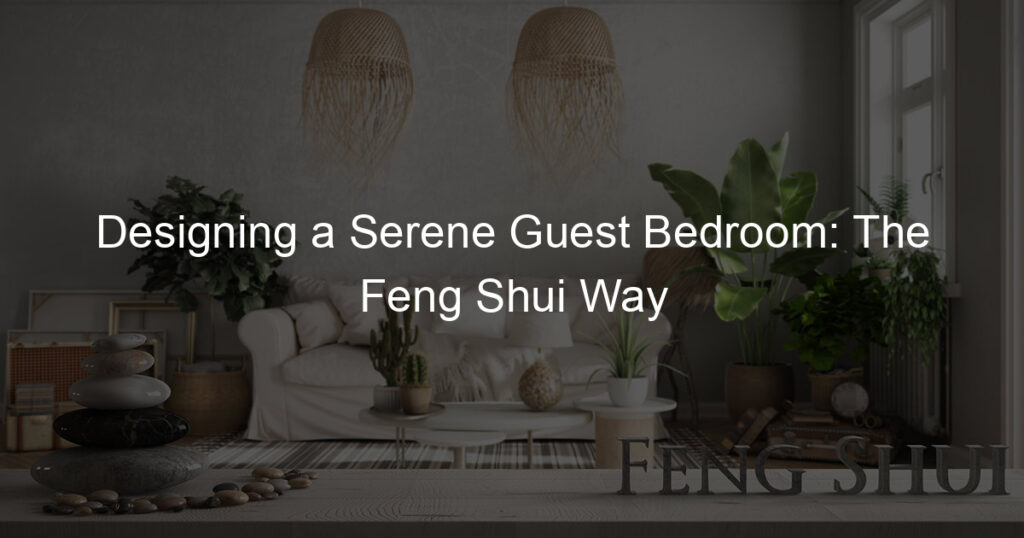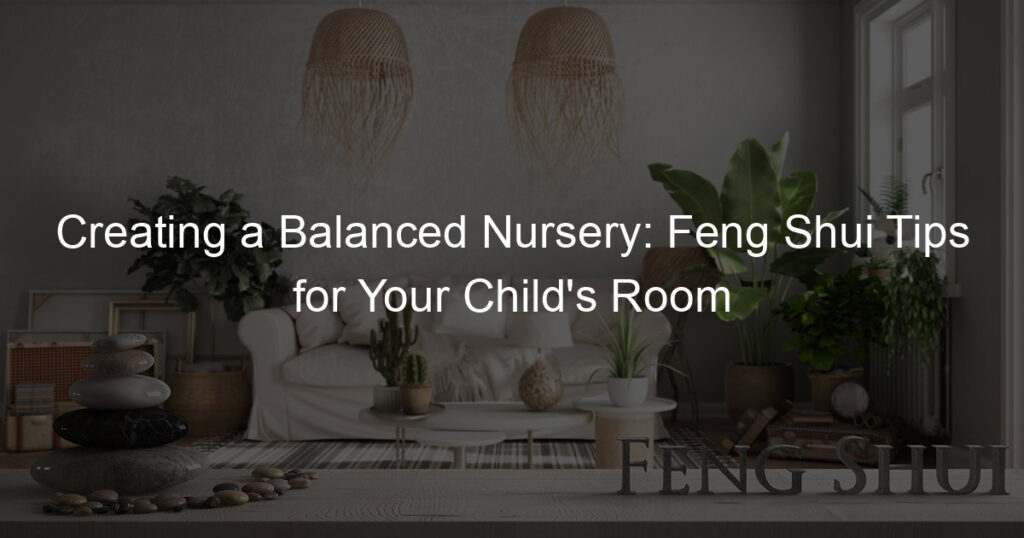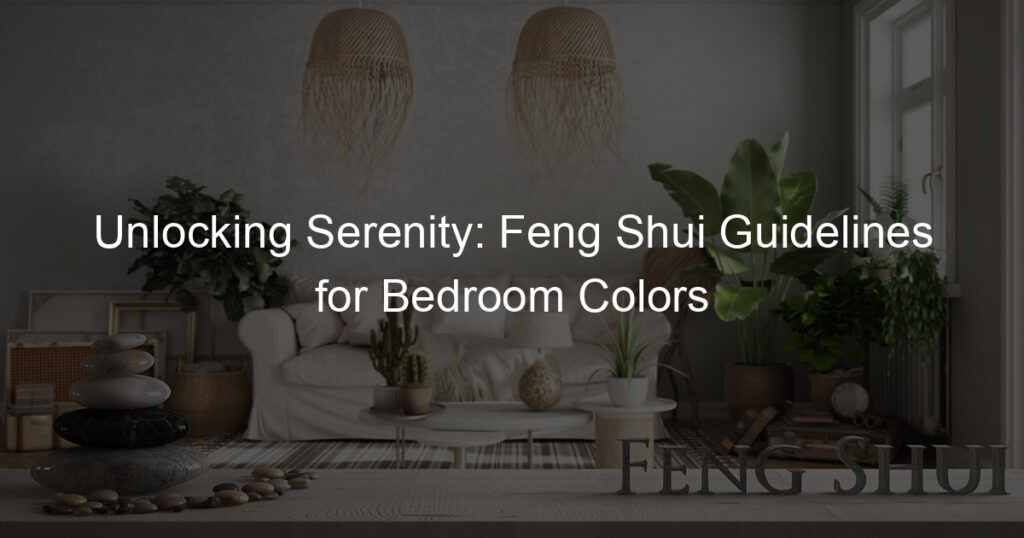
Introduction to Feng Shui Bedroom Design
Welcome to our comprehensive guide on Feng Shui bedroom design. In this section, we will delve into the fascinating world of Feng Shui, its principles, and its significance in bedroom design.
- Understanding the Principles of Feng Shui
- The Importance of Feng Shui in Bedroom Design
Feng Shui, a traditional practice originating from ancient China, is all about harmonizing individuals with their surrounding environment. It is based on the Taoist vision and understanding of nature, particularly on the idea that the land is alive and filled with Chi, or energy.
The primary principles of Feng Shui revolve around the command position, the Bagua, and the five elements. The command position refers to the spot in a room where you feel most in control. The Bagua is the Feng Shui energy map of your space, while the five elements are Wood, Fire, Earth, Metal, and Water. Each of these elements has a specific color associated with it, and they can be used in different areas of your room to create balance and harmony.
The bedroom is a sanctuary, a place for rest and rejuvenation. Therefore, it’s crucial to create a peaceful, relaxing, and harmonious environment. That’s where Feng Shui comes in.
Applying Feng Shui principles in bedroom design can significantly improve the quality of your sleep and your overall well-being. For instance, the command position principle suggests placing your bed in a position where you can see the door but are not directly in line with it. This position gives a sense of safety and control, which can lead to a more restful sleep.
Moreover, the use of appropriate colors based on the five elements can influence your mood and energy levels. For example, earth tones can provide stability and calmness, while colors associated with the water element, like blue and black, can bring in wisdom and tranquility.
In the following sections, we will explore how to create a harmonious guest bedroom using Feng Shui and provide practical examples for better understanding. Stay tuned!
Creating a Harmonious Guest Bedroom with Feng Shui
Creating a guest bedroom that is both welcoming and harmonious can be a challenging task. However, with the principles of Feng Shui, you can transform any space into a tranquil oasis. Here are some tips to help you create a balanced and peaceful guest bedroom using Feng Shui.
Feng Shui Bedroom Tips
- Choosing the right location for the guest bedroom
- Optimizing the Feng Shui bedroom layout
- Creating balance with Feng Shui
The location of your guest bedroom plays a crucial role in Feng Shui. Ideally, it should be located in a quiet part of the house, away from the main living areas. This helps to create a peaceful environment for your guests. It’s also important to avoid placing the guest bedroom directly above or below a bathroom or kitchen, as these areas can generate negative energy.
The layout of your guest bedroom can significantly impact the energy flow. In Feng Shui, the bed should be placed in a commanding position, which means it should be easily seen from the bedroom door but not directly in line with it. Also, ensure there is ample space on both sides of the bed to promote balance and harmony.
Balance is a key principle in Feng Shui. To create a balanced guest bedroom, incorporate elements from each of the five Feng Shui elements: wood, fire, earth, metal, and water. This can be achieved through the use of colors, shapes, and materials. For instance, you can use wooden furniture (wood), candles (fire), earth-toned bedding (earth), metal accents (metal), and a small water feature or artwork depicting water (water).
By following these Feng Shui tips, you can create a guest bedroom that is not only visually appealing but also promotes a sense of peace and tranquility. Remember, the goal of Feng Shui is to create a harmonious environment that enhances the well-being of those who occupy the space.
Feng Shui Adjustments for a Peaceful Bedroom
Creating a peaceful bedroom environment is key to promoting restful sleep and overall well-being. Feng Shui, an ancient Chinese practice, offers valuable insights on how to achieve this tranquility. Let’s explore two major Feng Shui adjustments you can make to enhance the peace and harmony in your bedroom.
- Using Feng Shui Elements to Enhance Tranquility
- Eliminating Negative Energy with Feng Shui Adjustments
Feng Shui emphasizes the balance of five elements: wood, fire, earth, metal, and water. Each element represents different types of energy and can be incorporated into your bedroom design to enhance tranquility.
For example, the wood element symbolizes growth and vitality. You can introduce this element by incorporating wooden furniture or plants in your bedroom. The water element, representing wisdom and serenity, can be introduced through artwork featuring water or by using shades of blue and black in your decor.
Another crucial aspect of Feng Shui is the elimination of negative energy, or ‘Sha Chi.’ This can be achieved by removing clutter, ensuring good air quality, and avoiding sharp corners pointed towards the bed.
Clutter disrupts the flow of positive energy, or ‘Chi,’ in your room. Regularly cleaning and organizing your bedroom can help maintain a positive energy flow. Air quality can be improved by opening windows for fresh air or using air purifiers. Sharp corners, according to Feng Shui, can direct negative energy towards the bed. To counter this, try to position your bed away from these corners or soften them with plants or fabric.
In conclusion, Feng Shui offers practical and effective methods to create a peaceful bedroom. By balancing the five elements and eliminating negative energy, you can transform your bedroom into a sanctuary of tranquility and harmony.
Feng Shui for Guest Room: Practical Examples
Let’s dive into some practical examples of how Feng Shui can transform your guest room into a haven of peace and harmony. We’ll look at a real-life case study and discuss the key takeaways.
Case Study: Transforming a Guest Room with Feng Shui
In this case study, we’ll explore how a simple guest room was transformed into a serene and welcoming space using Feng Shui principles.
- Before and after: A Feng Shui guest room transformation
- Key takeaways from the case study
- Decluttering is essential: A clutter-free room allows for better energy flow.
- Positioning matters: The position of the bed can greatly affect the room’s energy.
- Color scheme is important: Soothing colors can create a more peaceful environment.
- Natural light is beneficial: Natural light can help balance the energy in the room.
Before the transformation, the guest room was cluttered and lacked a sense of flow. The bed was pushed against a wall, the color scheme was jarring, and there was no natural light. After applying Feng Shui principles, the room was transformed. The bed was repositioned to allow for better energy flow, the color scheme was changed to soothing earth tones, and curtains were replaced with sheer ones to allow natural light in. The result was a room that not only looked better but also felt more welcoming and peaceful.
From this transformation, we can learn several key lessons about applying Feng Shui to a guest room:
In conclusion, Feng Shui can greatly improve the atmosphere and energy of a guest room. By decluttering, repositioning furniture, choosing the right colors, and allowing natural light, you can create a guest room that is not only visually appealing but also promotes harmony and peace.
Feng Shui Guest Room Ideas
Creating a guest room that is both inviting and harmonious can be achieved by incorporating Feng Shui principles. Let’s explore some practical ideas that you can implement to transform your guest room into a serene and balanced space.
- Incorporating Feng Shui colors for a serene guest bedroom
- Using Feng Shui symbols for a harmonious guest room
Colors play a significant role in Feng Shui as they are linked to the five elements – Wood, Fire, Earth, Metal, and Water. Each color represents a different energy, and using the right combination can create a serene and calming atmosphere in your guest room. For instance, soft blue and green hues represent Wood and can bring a sense of growth and healing. Earth tones like beige, light yellow, and sandy colors can provide stability and warmth. Remember, the goal is to create a balanced and peaceful environment for your guests.
Feng Shui symbols can be a powerful tool to enhance the positive energy in your guest room. For example, the lotus flower, a symbol of purity and perfection, can be used in artwork or bedding to create a harmonious atmosphere. The bamboo, representing resilience and longevity, can be incorporated in the form of a small plant or furniture. These symbols not only add a unique aesthetic appeal to your guest room but also promote a sense of peace and harmony.
By integrating these Feng Shui ideas, you can create a guest room that is not only visually appealing but also promotes a sense of well-being and relaxation. Remember, the key to successful Feng Shui design is balance and harmony, so strive to create a space that embodies these principles.
Conclusion: Achieving Bedroom Harmony with Feng Shui
In this article, we’ve explored the ancient art of Feng Shui and how it can transform your guest bedroom into a serene, harmonious space. Let’s take a moment to recap the main principles and share some final thoughts on creating a tranquil guest room with Feng Shui.
- Recap of Feng Shui bedroom design principles
- Final thoughts on creating a serene guest bedroom with Feng Shui
Feng Shui is all about balancing energy, or ‘Chi’, to promote health, happiness, and prosperity. In a bedroom, this involves careful consideration of furniture placement, color choices, and the use of natural elements.
Remember, the bed should be in a ‘commanding position’, facing the door but not directly in line with it. Avoid placing the bed under a window or beam. Choose soothing colors like blues, greens, and earth tones, and incorporate natural elements like plants and wooden furniture. Mirrors should be used sparingly and never facing the bed.
Designing a guest bedroom with Feng Shui principles can create a peaceful, welcoming space that helps your guests feel relaxed and at home. By following these principles, you can create a room that not only looks beautiful but also promotes positive energy and well-being.
Remember, Feng Shui is not a one-size-fits-all solution. It’s about creating balance and harmony in a way that feels right for you and your guests. So, don’t be afraid to experiment and make changes until you find the perfect balance.
In conclusion, Feng Shui offers a unique approach to bedroom design that can enhance the comfort and tranquility of your guest room. By applying these principles, you can create a space that is not only aesthetically pleasing but also promotes positive energy and well-being. Here’s to creating a harmonious guest bedroom with Feng Shui!














